This article provides a comprehensive guide to identifying the most qualified and trustworthy lawyers in Columbus, Ohio, across various legal specialties, ensuring you make informed decisions for your legal needs.
Finding the right lawyer can be a daunting task, especially in a bustling city like Columbus, Ohio. With numerous legal specialties available, it’s essential to know what to look for in an attorney to ensure you receive the best representation possible. Below, we delve into various legal case types and how to find the best lawyers for each.
Understanding Personal Injury Cases
Personal injury cases arise from various incidents, including accidents and negligence. When looking for a personal injury attorney, consider their track record in similar cases, client testimonials, and their willingness to take cases to trial if necessary. Utilize online platforms like Avvo or Martindale-Hubbell to check ratings and reviews.
Medical Malpractice: Finding the Right Attorney
Medical malpractice requires specialized knowledge. Seek attorneys with a background in healthcare law or those who have previously worked in medical settings. Verify their credentials and look for memberships in organizations like the American Association for Justice, which can indicate their commitment to this field.
Choosing a Lawyer for Breach of Contract Cases
Breach of contract disputes can be intricate. Look for lawyers who have a proven history in contract law and have successfully handled similar cases. Checking their experience with mediation or arbitration can also be beneficial, as many disputes are resolved outside of court.
Navigating Property Disputes: Legal Guidance
Property disputes often involve emotional and financial stakes. When searching for a lawyer, ensure they have experience in real estate law. Ask about their familiarity with local property laws and their approach to resolving disputes, whether through negotiation or litigation.
Landlord-Tenant Disputes: Legal Representation
These disputes are common in urban settings. Look for attorneys specializing in housing law. They should be well-versed in tenant rights and landlord obligations. Checking their involvement in local tenant advocacy groups can also be a positive sign.
Defamation Cases: Finding the Right Legal Expert
Defamation, including libel and slander, requires attorneys with a solid understanding of media law. Seek lawyers who have represented clients in similar cases and understand the nuances of free speech laws and public figure standards.
Employment Disputes: Securing Legal Support
Employment disputes can encompass various issues, including wrongful termination and discrimination. When selecting a lawyer, ensure they specialize in labor law and have experience with the Equal Employment Opportunity Commission (EEOC) processes.
Product Liability: Selecting the Right Attorney
Product liability cases involve injuries caused by defective products. Look for attorneys with experience in consumer protection and a solid understanding of product safety regulations. Their history of successful settlements or verdicts in similar cases should also be a key consideration.
Wrongful Death Cases: Seeking Justice
These cases are particularly sensitive and require compassionate representation. Choose an attorney who specializes in wrongful death and has a deep understanding of the emotional and legal complexities involved. Their ability to handle negotiations with insurance companies is crucial.
Class Action Lawsuits: Finding Representation
Class action lawsuits allow individuals to sue as a group. Seek attorneys with experience in managing large groups of clients and a history of successful class action outcomes. Their understanding of federal and state class action rules is essential.
Criminal Defense: Assault and Battery Cases
Assault and battery charges require skilled defense attorneys. Look for lawyers with significant experience in criminal law and a proven track record of defending similar cases. Their familiarity with local courts and prosecutors can significantly influence the outcome.
Drug Offenses: Legal Representation Strategies
Drug offenses can lead to severe consequences. Seek attorneys specializing in drug-related cases and those familiar with diversion programs and plea negotiations. Their knowledge of state and federal drug laws is vital for effective representation.
Theft and Burglary: Securing Legal Defense
Cases involving theft and burglary require knowledgeable legal defense. Look for attorneys with experience in criminal defense, particularly in property crimes. Their ability to negotiate plea deals or reduce charges can be crucial in these cases.
Fraud and Embezzlement Cases: Finding the Right Lawyer
Fraud and embezzlement cases can be complex. Seek attorneys with a background in white-collar crime and experience in financial investigations. Their understanding of financial regulations and forensic accounting can provide a significant advantage.
Understanding Homicide and Murder Cases
Murder and homicide cases necessitate skilled legal representation. Choose attorneys with extensive experience in criminal defense, particularly in serious felony cases. Their familiarity with jury selection and trial strategies is essential for a robust defense.
DUI/DWI: Finding Effective Legal Counsel
DUI/DWI charges can have severe repercussions. Seek attorneys who specialize in DUI defense and understand the intricacies of breathalyzer tests and field sobriety tests. Their experience in negotiating reduced charges can be beneficial.
Domestic Violence: Seeking Legal Protection
Domestic violence cases require sensitive handling. Look for attorneys experienced in family law and domestic violence issues. Their understanding of protective orders and advocacy for victims’ rights is crucial for effective representation.

Understanding Personal Injury Cases
Personal injury cases are a significant area of law that encompasses a wide range of incidents where individuals suffer harm due to the negligence or wrongful actions of others. These cases can arise from automobile accidents, slip and fall incidents, workplace injuries, and medical malpractice, among others. Understanding the nuances of personal injury law is essential for victims seeking compensation for their injuries.
Finding an attorney who specializes in personal injury law is crucial for effective representation. Here are some practical steps to help you locate the right legal expert:
- Research Local Attorneys: Start by searching for personal injury attorneys in your area. Websites like Avvo and Lawyers.com provide directories of lawyers along with reviews and ratings.
- Check Credentials: Look for attorneys with specific experience in personal injury cases. Verify their educational background, bar association membership, and any additional certifications related to personal injury law.
- Seek Referrals: Ask friends, family, or colleagues if they can recommend a reputable personal injury attorney. Personal referrals can often lead to trustworthy legal representation.
- Schedule Consultations: Many personal injury attorneys offer free initial consultations. Use this opportunity to discuss your case and assess the attorney’s approach and expertise.
- Evaluate Experience: Inquire about the attorney’s experience with cases similar to yours. A lawyer who has successfully handled cases involving similar injuries or circumstances will be better equipped to advocate for you.
- Review Success Rates: Ask about the attorney’s track record in securing settlements or verdicts for their clients. A high success rate can indicate their effectiveness in the courtroom.
- Understand Fee Structures: Personal injury attorneys typically work on a contingency fee basis, meaning they only get paid if you win your case. Make sure to clarify their fee structure and any additional costs you may incur.
When discussing your case with potential attorneys, pay attention to their communication style and willingness to answer your questions. A good attorney should be approachable and transparent about the legal process. Additionally, be cautious of any red flags, such as attorneys who promise guaranteed outcomes or pressure you into making quick decisions.
In summary, navigating personal injury cases can be complex, but finding the right attorney is a vital step toward receiving the compensation you deserve. By conducting thorough research, checking credentials, and evaluating potential attorneys based on their experience and success rates, you can make an informed decision that best suits your needs.

Medical Malpractice: Finding the Right Attorney
When dealing with medical malpractice cases, it is essential to find an attorney who possesses specialized knowledge and experience in this complex area of law. Medical malpractice occurs when a healthcare professional fails to provide the standard of care expected, resulting in harm to a patient. This type of case can involve various issues, such as misdiagnosis, surgical errors, or improper treatment. Given the intricacies involved, hiring the right attorney is crucial for a successful outcome.
To locate qualified attorneys in medical malpractice, consider the following steps:
- Research Specialization: Look for lawyers who specialize in medical malpractice. Check their websites or professional profiles for specific mentions of this area of law. An attorney with a focus on medical malpractice will have a deeper understanding of the relevant laws and medical standards.
- Check Credentials: Verify the attorney’s credentials, including their education, years of experience, and any additional certifications related to medical malpractice. Membership in professional organizations, such as the American Association for Justice, can also indicate a commitment to this specialty.
- Review Past Cases: Look for attorneys who have successfully handled similar cases. This information can often be found on their websites or through legal databases. A strong track record in medical malpractice cases is a good indicator of their capability.
- Seek Recommendations: Ask for referrals from friends, family, or other legal professionals. Personal recommendations can provide insight into an attorney’s reputation and effectiveness.
- Conduct Initial Consultations: Many attorneys offer free initial consultations. Use this opportunity to ask questions about their experience, approach to cases, and success rates. Pay attention to their communication style and whether they listen to your concerns.
- Assess Fees and Payment Structures: Understand the attorney’s fee structure. Many medical malpractice attorneys work on a contingency fee basis, meaning they only get paid if you win your case. Make sure to clarify any additional costs that may arise during the process.
While searching for a medical malpractice attorney, be aware of potential red flags:
- Lack of Experience: Avoid attorneys who do not have significant experience in medical malpractice cases. This area of law requires specific knowledge of both legal and medical principles.
- Pressure Tactics: Be cautious of attorneys who pressure you into signing contracts or making quick decisions. A reputable lawyer will give you the time you need to make informed choices.
- Poor Communication: If an attorney is difficult to reach or does not respond promptly to your inquiries, it may indicate a lack of professionalism.
In summary, finding the right attorney for a medical malpractice case involves thorough research, checking credentials, and assessing past performance. By following these guidelines, you can increase your chances of securing a qualified legal professional who can effectively advocate for your rights and help you navigate the complexities of your case.

Choosing a Lawyer for Breach of Contract Cases
Breach of contract disputes can often be intricate and challenging, involving various legal nuances that require skilled representation. When faced with such a situation, selecting the right attorney is crucial for navigating the complexities of contract law and achieving a favorable outcome. Here are some essential guidelines to help you find a lawyer who is not only knowledgeable but also has a proven track record in handling breach of contract cases.
- Look for Specialization: It is vital to choose a lawyer who specializes in contract law. Attorneys who focus on this area will have a deeper understanding of the nuances involved in contract disputes and will be better equipped to represent your interests effectively.
- Check Experience and Track Record: When evaluating potential lawyers, inquire about their experience in handling breach of contract cases. Ask for examples of past cases they have worked on and their success rates. A lawyer with a strong history of favorable outcomes in similar cases can provide you with the confidence you need.
- Seek Client Reviews and Testimonials: Research online reviews and client testimonials to gauge the reputation of the attorney. Websites such as Avvo and Martindale-Hubbell can provide insights into the lawyer’s professionalism, communication skills, and overall client satisfaction.
- Assess Communication Skills: Effective communication is paramount in legal matters. During your initial consultation, pay attention to how well the lawyer explains complex legal concepts and whether they take the time to address your concerns. A lawyer who communicates clearly and listens to your needs will likely be more effective in representing you.
- Evaluate Fee Structures: Understanding the attorney’s fee structure is essential before committing. Some lawyers charge hourly rates, while others may work on a contingency basis. Ensure that you have a clear understanding of the costs involved and any potential additional fees that may arise during the process.
- Consider Location: Choosing a lawyer who practices in your area can be beneficial, as they will be familiar with local laws and court procedures. Additionally, accessibility for meetings and consultations can make the process smoother.
- Trust Your Instincts: Finally, trust your instincts when selecting a lawyer. You should feel comfortable and confident in their abilities. If something feels off during your initial meetings, it may be worth considering other options.
In summary, navigating breach of contract disputes requires a lawyer who not only understands contract law but also has a proven track record in similar cases. By focusing on specialization, experience, communication, and your personal comfort level, you can make an informed decision that will set the stage for successful legal representation.
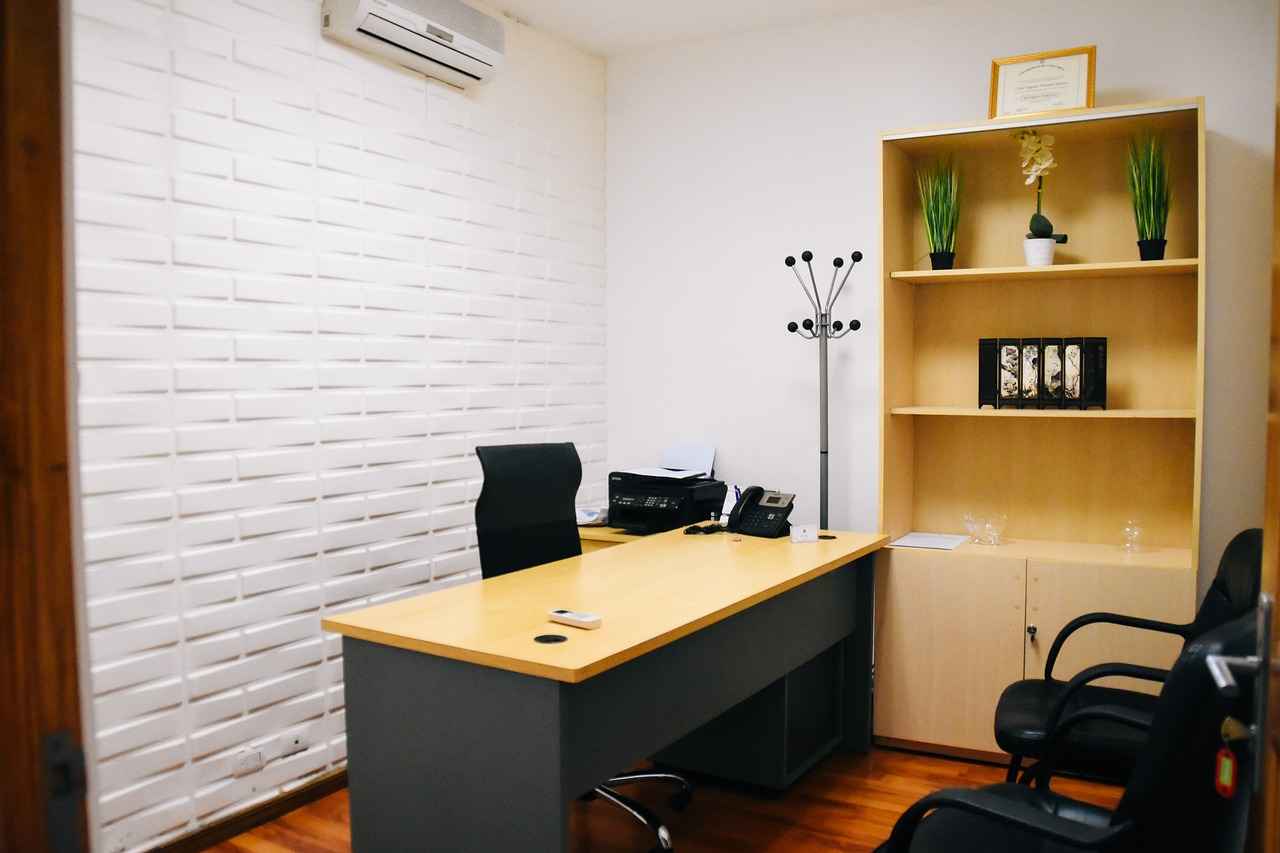
Navigating Property Disputes: Legal Guidance
Property disputes can be emotionally charged and complex, often stemming from disagreements over ownership, boundaries, or usage rights. When faced with such challenges, it is essential to find an attorney who can effectively navigate these sensitive legal waters. Here are some key steps to consider when searching for the right legal representation in property disputes.
- Identify Your Specific Needs: Before you begin your search, it’s important to clarify the nature of your property dispute. Are you dealing with issues related to real estate transactions, landlord-tenant relationships, or boundary disputes? Understanding your specific situation will help you find an attorney with the relevant expertise.
- Research Local Attorneys: Start by researching attorneys in your area who specialize in property law. Look for those with a proven track record in handling cases similar to yours. Websites like Avvo and FindLaw can provide valuable insights into attorney ratings, reviews, and areas of specialization.
- Check Credentials: When considering potential attorneys, verify their credentials. Look for licenses to practice law in your state and check if they are members of relevant legal associations, such as the American Bar Association or local bar associations. Specialized certifications in property law can also be a plus.
- Schedule Consultations: Many attorneys offer free initial consultations. Use this opportunity to discuss your case and assess their communication style and approach. Pay attention to how well they listen to your concerns and whether they provide clear answers to your questions.
- Discuss Fees and Payment Structures: Understanding the attorney’s fee structure is crucial. Some may charge hourly rates, while others might work on a contingency basis. Be sure to discuss all potential costs upfront to avoid surprises later on.
- Assess Experience and Success Rate: Inquire about the attorney’s experience with property disputes. Ask about their success rate in similar cases and how they approach negotiations and litigation. An attorney with a strong background in property law can significantly impact the outcome of your case.
- Read Client Reviews: Online reviews and testimonials can provide insight into the attorney’s reputation. Look for feedback from previous clients regarding their experiences and the outcomes of their cases. This information can help you gauge the attorney’s reliability and effectiveness.
- Trust Your Instincts: Finally, trust your instincts when choosing an attorney. You should feel comfortable and confident in their ability to represent your interests. A strong attorney-client relationship is essential, especially in emotionally charged disputes.
In summary, navigating property disputes requires careful consideration when selecting legal representation. By identifying your needs, conducting thorough research, and assessing potential attorneys based on their experience and credentials, you can find a qualified lawyer who will help you effectively manage your property dispute.
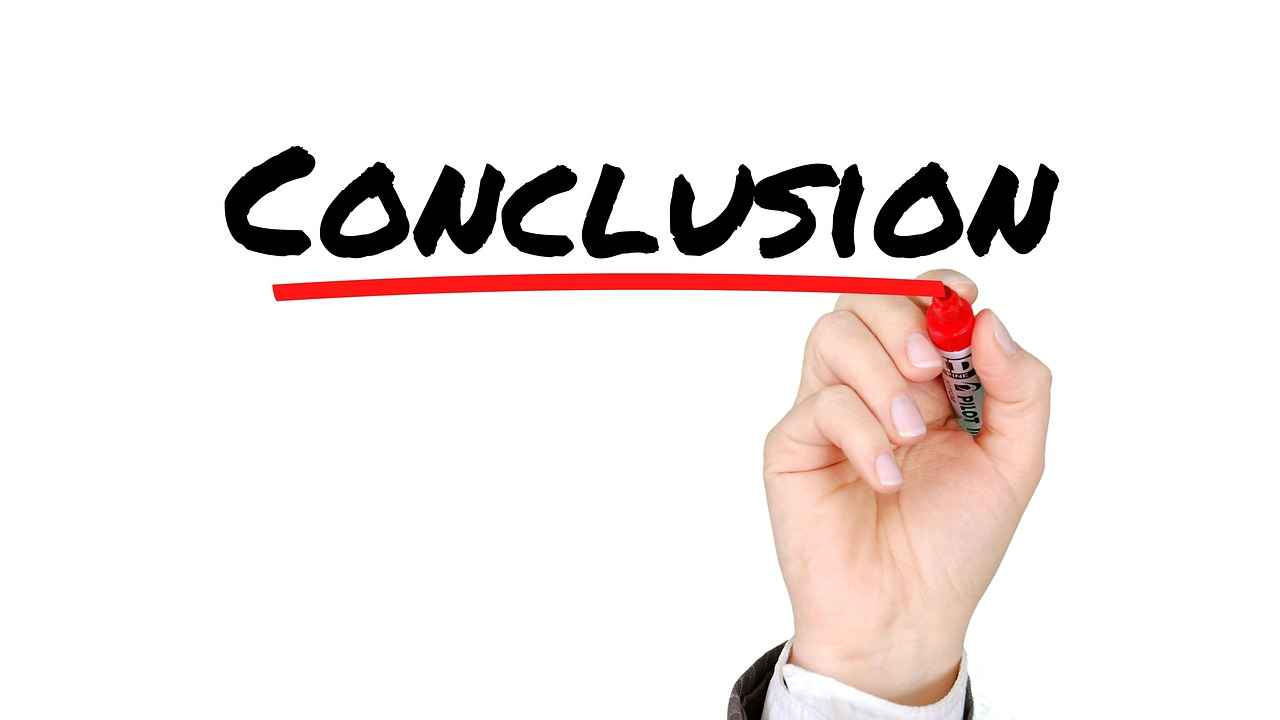
Landlord-Tenant Disputes: Legal Representation
Landlord-tenant disputes are a frequent source of conflict in the rental housing market. These disputes can arise from various issues, including non-payment of rent, property maintenance, and lease violations. Understanding how to find an attorney who specializes in housing law and tenant rights in Columbus is essential for both landlords and tenants seeking to resolve their issues effectively.
When looking for a qualified attorney in Columbus, consider the following steps:
- Research Local Attorneys: Start by searching online for attorneys who specialize in housing law. Websites like Avvo, FindLaw, and Justia can provide listings of lawyers along with their ratings, reviews, and areas of expertise.
- Check Credentials: Look for attorneys with specific experience in landlord-tenant disputes. Verify their education, years of practice, and any certifications related to housing law.
- Seek Referrals: Ask friends, family, or colleagues if they can recommend a reputable attorney. Personal referrals can provide insights into an attorney’s effectiveness and communication style.
- Consult Local Bar Associations: The Columbus Bar Association can be a valuable resource for finding qualified attorneys. They often have referral services that can connect you with lawyers who specialize in housing law.
- Schedule Consultations: Once you have a list of potential attorneys, schedule consultations to discuss your case. Many attorneys offer free initial consultations, allowing you to gauge their expertise and approach.
During your consultation, consider asking the following questions:
- What is your experience with landlord-tenant disputes?
- How do you approach cases like mine?
- What are your fees, and how do you structure your billing?
- Can you provide references from past clients?
It’s crucial to find an attorney who not only understands the law but also demonstrates a commitment to protecting your rights. Look for someone who communicates clearly and makes you feel comfortable discussing your situation.
Additionally, be aware of red flags when selecting an attorney. If a lawyer guarantees a specific outcome, is unwilling to provide references, or has numerous complaints against them, these could be signs to look elsewhere. Trust your instincts; a good attorney will be transparent about the potential outcomes of your case and will work collaboratively with you to achieve the best result.
In Columbus, various legal resources are available to assist you in landlord-tenant disputes. Local legal aid organizations, such as the Legal Aid Society of Columbus, can offer free or low-cost legal assistance to those who qualify. They can help you navigate the complexities of housing law and provide representation if necessary.
Understanding your rights as a tenant or landlord is vital. Familiarize yourself with Ohio’s landlord-tenant laws, which outline the responsibilities and rights of both parties. This knowledge can empower you during negotiations and disputes.
In summary, finding the right attorney for landlord-tenant disputes in Columbus involves thorough research, checking credentials, and seeking referrals. By asking the right questions and being aware of red flags, you can select a legal professional who will advocate for your interests and help you resolve your housing issues effectively.
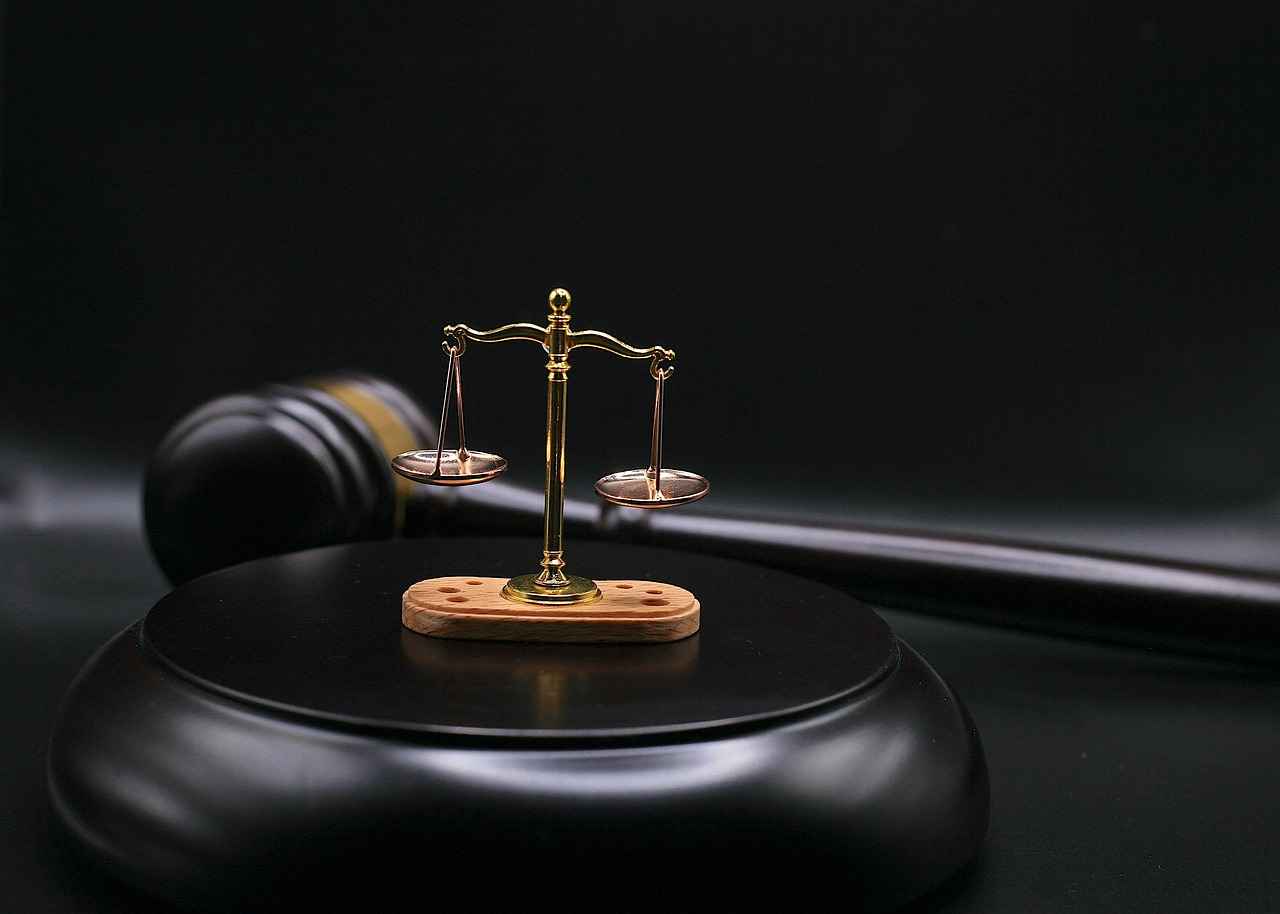
Defamation Cases: Finding the Right Legal Expert
Defamation cases, which encompass both libel (written defamation) and slander (spoken defamation), are intricate legal matters that necessitate specialized knowledge and expertise. If you find yourself involved in a defamation case, whether as a plaintiff or defendant, understanding how to identify the right legal representation is crucial. Here are essential insights to help you find a qualified attorney in this specialized field.
First and foremost, it is essential to seek attorneys who possess a robust background in media law and defamation. These legal professionals should have experience handling cases that involve freedom of speech, First Amendment rights, and the nuances of proving damages in defamation claims. Look for lawyers who have successfully represented clients in similar cases, as their practical experience can significantly impact the outcome of your case.
When searching for a defamation attorney, consider utilizing reputable legal directories and platforms. Websites such as Avvo and FindLaw allow you to filter attorneys based on their specialties, client reviews, and ratings. Pay close attention to the credentials of potential candidates. Attorneys who have written articles, spoken at conferences, or taught courses on defamation law demonstrate a commitment to staying updated on the latest legal trends and precedents.
Another critical factor is to schedule initial consultations with prospective attorneys. During these meetings, ask pointed questions about their experience with defamation cases, including their success rates and strategies for handling such cases. This is also an opportunity to evaluate their communication skills and whether you feel comfortable discussing sensitive issues with them.
While searching for the right attorney, be wary of red flags. Avoid lawyers who make unrealistic promises about the outcomes of your case or those who seem more interested in their fees than in your situation. It’s essential to find an attorney who prioritizes your best interests and provides a realistic assessment of your case.
In addition to traditional methods, consider seeking referrals from trusted sources, such as friends, family, or colleagues who may have dealt with similar legal issues. Personal recommendations can often lead you to competent and trustworthy legal professionals.
In summary, finding the right legal expert for defamation cases requires diligence and careful consideration. By focusing on attorneys with specialized knowledge in media law, utilizing reputable platforms for research, and conducting thorough interviews, you can ensure that you secure the best possible representation for your defamation case.

Employment Disputes: Securing Legal Support
Employment disputes are a significant aspect of labor law, encompassing various issues such as wrongful termination, workplace discrimination, harassment, and wage disputes. Navigating these complex legal waters can be challenging for employees seeking justice and fair treatment in the workplace. Understanding how to find a lawyer experienced in labor law and employee rights is crucial for anyone facing such disputes.
When searching for a qualified attorney, consider the following steps:
- Research and Referrals: Start by asking friends, family, or colleagues for recommendations. Personal referrals can provide insights into an attorney’s effectiveness and approach.
- Online Directories: Utilize legal directories such as Avvo, FindLaw, or Martindale-Hubbell. These platforms allow you to filter attorneys by specialty and location, providing reviews and ratings to help you make informed decisions.
- Check Credentials: Look for attorneys with experience specifically in employment law. Verify their education, years of practice, and any specialized certifications related to labor law.
- Initial Consultations: Many attorneys offer free initial consultations. Use this opportunity to discuss your case, understand their approach, and gauge their expertise. Prepare questions about their experience with similar cases, success rates, and legal fees.
- Assess Communication: Effective communication is vital in legal representation. Ensure that the attorney listens to your concerns, explains legal concepts clearly, and keeps you informed throughout the process.
- Red Flags to Avoid: Be cautious of attorneys who make unrealistic promises or guarantee outcomes. Additionally, avoid those who seem disinterested or fail to provide clear answers to your questions.
In major metropolitan areas such as New York City, Los Angeles, and Chicago, the legal landscape is competitive, and many attorneys specialize in employment law. Leverage local bar associations and legal aid organizations that offer resources and referrals to reputable lawyers in your area.
Furthermore, understanding your rights as an employee is essential. Familiarize yourself with federal and state labor laws, such as the Fair Labor Standards Act and the Family and Medical Leave Act, which can provide a foundation for your case. Knowledge of these laws can enhance your discussions with potential attorneys and help you articulate your situation more effectively.
In summary, securing legal support for employment disputes involves thorough research, leveraging available resources, and fostering open communication with potential attorneys. By following these steps, you can increase your chances of finding a qualified lawyer who will advocate for your rights and interests in the workplace.
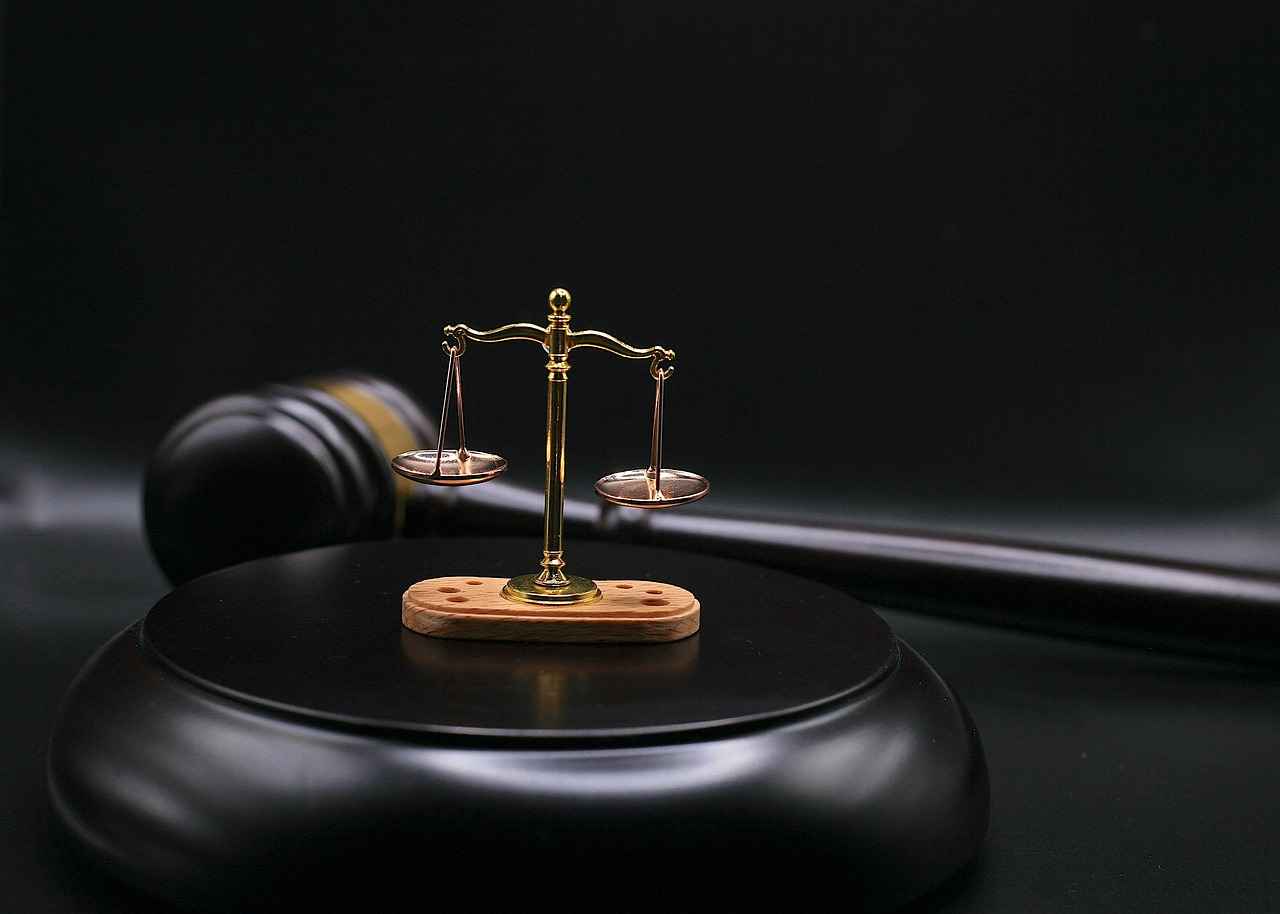
Product Liability: Selecting the Right Attorney
When it comes to product liability cases, the stakes can be incredibly high. These cases often arise when individuals suffer injuries due to defective products, whether they are faulty electronics, unsafe medications, or poorly designed household items. Navigating the complexities of product liability law requires not only a deep understanding of legal principles but also an attorney with specific expertise in consumer protection and product liability.
To find the right attorney for your product liability case, consider the following steps:
- Research Specialized Attorneys: Start by looking for attorneys who specialize in product liability. Use legal directories such as Avvo, FindLaw, or Justia to filter your search based on location and area of expertise. Focus on those who have a proven track record in handling similar cases.
- Check Qualifications and Experience: Look for attorneys with a solid educational background and experience in product liability law. Verify their credentials, including any relevant certifications, and ensure they have handled cases similar to yours successfully.
- Read Client Reviews: Online reviews can provide valuable insights into an attorney’s reputation and effectiveness. Look for testimonials on their website and third-party review platforms. Pay attention to cases involving product defects and the attorney’s approach to those cases.
- Evaluate Communication Skills: A good attorney should be able to explain complex legal concepts in a way that is easy to understand. Schedule consultations with potential attorneys to gauge their communication style and responsiveness.
- Assess Resources: Product liability cases can be resource-intensive, often requiring expert witnesses and extensive research. Ensure that the attorney you choose has access to the necessary resources to build a strong case.
- Discuss Fees and Costs: Understand the attorney’s fee structure before making a decision. Many product liability attorneys work on a contingency fee basis, meaning they only get paid if you win your case. Clarify any additional costs you may incur during the legal process.
- Trust Your Instincts: Finally, choose an attorney you feel comfortable with. Trust and rapport are essential in any attorney-client relationship, especially in sensitive cases like product liability.
In conclusion, finding the right attorney for a product liability case involves thorough research and careful consideration. By focusing on specialized expertise, client reviews, and effective communication, you can ensure that you are well-represented in your legal battle. Remember, the right attorney can make a significant difference in the outcome of your case.

Wrongful Death Cases: Seeking Justice
Wrongful death cases are among the most sensitive and complex legal matters one can encounter. These cases arise when an individual loses their life due to the negligence or misconduct of another party. The emotional toll on the surviving family members can be overwhelming, making it essential to choose an attorney who not only possesses the legal expertise but also demonstrates compassion and understanding during such a difficult time.
When seeking legal representation for a wrongful death case, consider the following key factors:
- Experience in Wrongful Death Cases: Look for attorneys who specialize in wrongful death claims. Their experience in navigating the complexities of these cases can significantly impact the outcome. A lawyer with a proven track record in similar cases will understand the nuances involved.
- Empathy and Communication: The attorney you choose should be someone who listens to your concerns and communicates clearly. They should be able to explain legal concepts in a way that is easily understandable, ensuring you feel supported throughout the legal process.
- Reputation and Reviews: Research the attorney’s reputation in the community. Online reviews and testimonials can provide insight into their professionalism and success rate. Additionally, consider seeking referrals from friends or family who have had positive experiences.
- Fee Structure: Understand the attorney’s fee structure before signing any agreements. Many wrongful death attorneys work on a contingency fee basis, meaning they only get paid if you win the case. Ensure you are comfortable with the terms and conditions laid out in the contract.
- Initial Consultation: Take advantage of initial consultations, which many attorneys offer for free. This meeting allows you to gauge their approach and see if they are a good fit for your needs. Prepare a list of questions to ask during this meeting to assess their qualifications and strategy.
In wrongful death cases, the burden of proof lies with the plaintiff, meaning that your attorney must be able to establish that the defendant’s actions directly led to the death of your loved one. This often involves gathering substantial evidence, including medical records, eyewitness testimonies, and expert opinions.
Additionally, wrongful death claims can involve various types of damages, including:
- Economic Damages: These include lost wages, funeral expenses, and medical bills incurred before death.
- Non-Economic Damages: These damages account for the emotional suffering and loss of companionship experienced by the surviving family members.
- Punitive Damages: In some cases, if the defendant’s actions were particularly egregious, punitive damages may be awarded to punish the wrongdoer and deter similar behavior in the future.
Choosing the right attorney for a wrongful death case is crucial, as the outcome can significantly affect the financial and emotional well-being of the family left behind. It is essential to take the time to conduct thorough research and select a legal professional who aligns with your needs and values. By doing so, you can ensure that your case is handled with the care and attention it deserves, allowing you to focus on healing and moving forward.
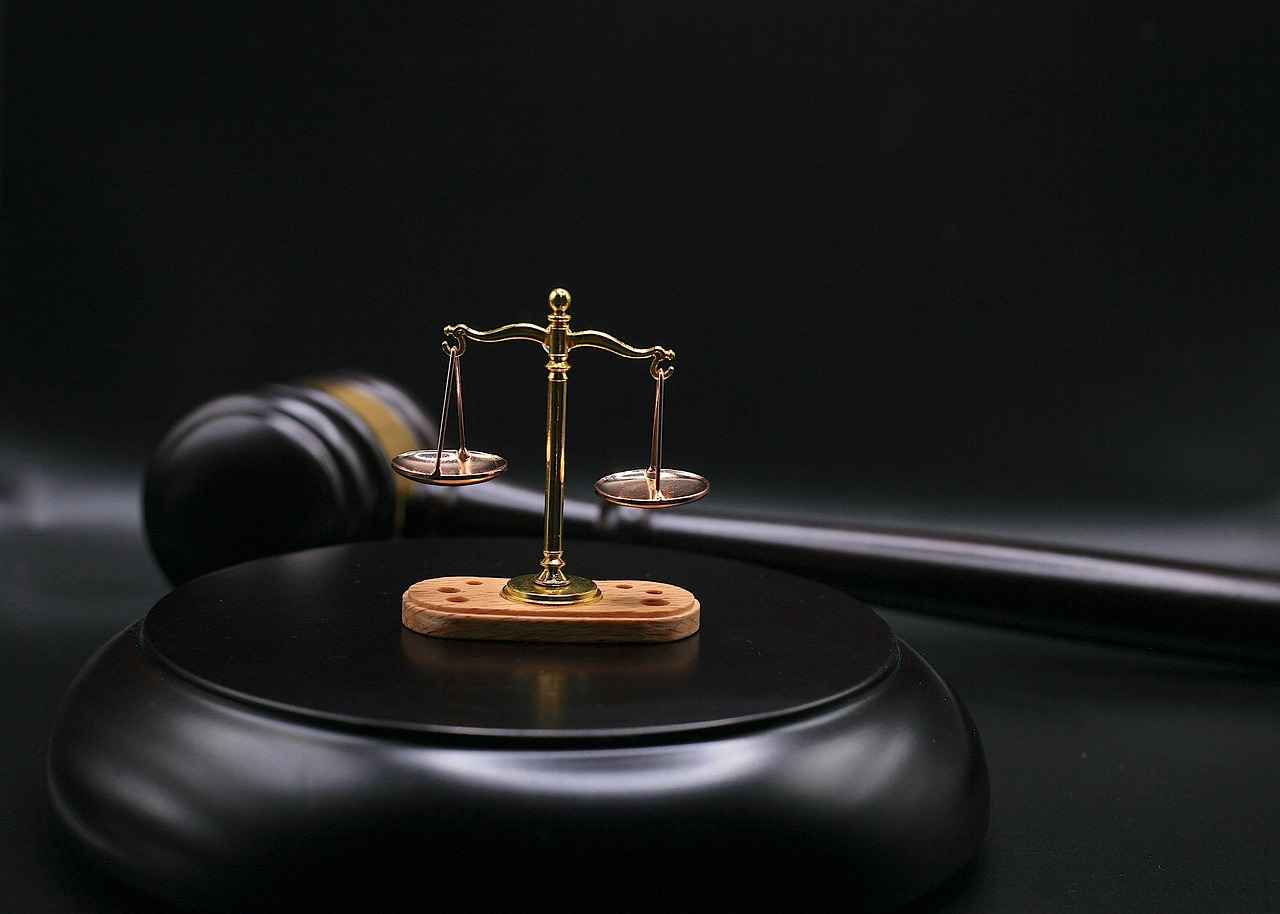
Class Action Lawsuits: Finding Representation
Class action lawsuits are a powerful legal mechanism that allows a group of individuals with similar grievances to come together and sue a defendant as a collective entity. This type of lawsuit is particularly effective in cases where individual claims may be too small to justify the expense of litigation. For instance, consumers harmed by a defective product or employees facing wage violations can benefit significantly from joining a class action. However, finding the right attorney to represent you in such cases is crucial for achieving a favorable outcome.
Understanding Class Action Lawsuits
Class action lawsuits typically arise in situations involving consumer protection, employment law, or toxic torts. In these cases, a large number of people may have been affected by the same issue, making it difficult for each individual to pursue their claims independently. By consolidating their claims, plaintiffs can share resources, reduce legal costs, and increase the chances of a successful resolution. However, navigating the complexities of class action litigation requires specialized legal expertise.
How to Find Attorneys Experienced in Class Actions
- Research Online: Begin your search by looking for law firms that specialize in class action lawsuits. Websites like Avvo and FindLaw can help you identify qualified attorneys based on their experience and client reviews.
- Check Credentials: Look for attorneys who have a proven track record in handling class action cases. This includes reviewing their past cases, outcomes, and any accolades or recognitions they have received in this area of law.
- Consult Legal Directories: Utilize legal directories such as Martindale-Hubbell to find attorneys who are rated highly by their peers and have experience in class action litigation.
- Seek Recommendations: Ask friends, family, or colleagues if they can recommend any attorneys who specialize in class actions. Personal referrals can provide valuable insights into an attorney’s capabilities.
- Schedule Consultations: Most attorneys offer free initial consultations. Use this opportunity to discuss your case and gauge the attorney’s understanding of class action laws. Pay attention to their communication style and willingness to answer your questions.
Red Flags to Avoid
While searching for an attorney, be aware of potential red flags that may indicate a lack of competence or integrity:
- Lack of Experience: Be cautious of attorneys who do not have a history of handling class action cases. This type of litigation is complex and requires specific knowledge of procedural rules.
- High Pressure Tactics: If an attorney pressures you to sign a contract or make a quick decision, it could be a sign that they are more interested in making a sale than providing quality legal representation.
- Poor Communication: An attorney who is difficult to reach or does not communicate effectively may not be the best choice for your case. You need someone who is responsive and keeps you informed throughout the process.
- Unclear Fee Structures: Ensure that you understand how the attorney charges for their services. Be wary of those who are not transparent about their fees or who ask for large upfront payments.
Conclusion
Finding the right attorney for a class action lawsuit can significantly impact the outcome of your case. By conducting thorough research, checking credentials, and being mindful of red flags, you can increase your chances of securing effective legal representation. Remember that class action lawsuits are often lengthy and complex, so having a knowledgeable attorney by your side is essential for navigating the legal landscape successfully.
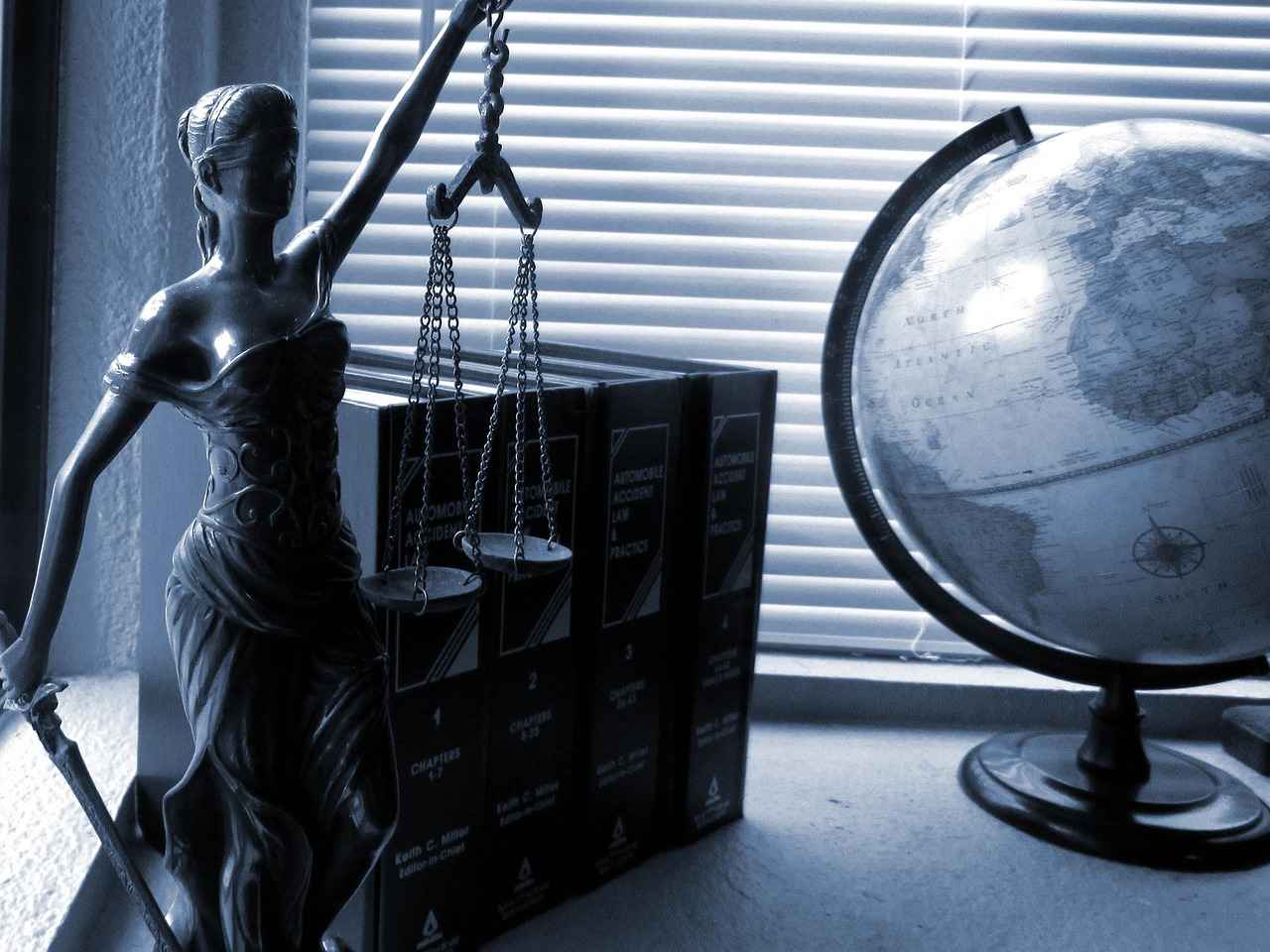
Criminal Defense: Assault and Battery Cases
When facing assault and battery charges, securing the right legal representation is crucial. These charges can lead to severe consequences, including hefty fines and imprisonment. Therefore, finding a skilled defense attorney is essential to navigate the complexities of the criminal justice system effectively.
To begin your search for a qualified attorney, consider the following strategies:
- Research Online: Utilize legal directories such as Avvo or FindLaw to search for attorneys specializing in criminal defense, particularly those with experience in assault and battery cases.
- Check Reviews and Ratings: Look for client reviews and ratings to gauge the attorney’s reputation and success rate in similar cases. Websites like Yelp and Google Maps can provide valuable insights.
- Consult Local Bar Associations: Reach out to your local or state bar association for referrals. They often have lists of qualified attorneys based on their area of expertise.
- Ask for Recommendations: Personal referrals from friends, family, or colleagues can be invaluable. If someone you trust has had a positive experience with a criminal defense attorney, that can be a good starting point.
- Interview Potential Attorneys: Schedule consultations with potential attorneys to discuss your case. Prepare questions regarding their experience, approach to defense, and success stories in similar cases.
When evaluating potential attorneys, consider their credentials:
- Experience: Look for attorneys with a proven track record in criminal defense, particularly in assault and battery cases.
- Specialization: Ensure the attorney specializes in criminal law, as this field requires specific knowledge and skills.
- Trial Experience: An attorney with trial experience is crucial, especially if your case may go to court. Inquire about their experience in jury trials.
- Communication Skills: Effective communication is key in legal representation. Choose an attorney who explains complex legal concepts clearly and listens to your concerns.
Additionally, be aware of red flags when selecting an attorney:
- High Pressure Sales Tactics: If an attorney pressures you to hire them immediately or makes unrealistic promises, consider this a warning sign.
- Lack of Transparency: An attorney who is not forthcoming about their fees, process, or potential outcomes may not have your best interests at heart.
- Negative Reviews: Pay attention to reviews that mention poor communication, lack of professionalism, or unsatisfactory outcomes.
In conclusion, navigating the legal landscape of assault and battery charges requires diligence in finding the right defense attorney. By conducting thorough research, checking credentials, and being mindful of red flags, you can ensure that you secure the best possible representation for your case. Remember, the right attorney can make all the difference in achieving a favorable outcome.

Drug Offenses: Legal Representation Strategies
Drug offenses can lead to severe legal repercussions, including lengthy prison sentences, hefty fines, and a tarnished reputation. Given the complexities of drug-related laws, it is essential to seek the guidance of a qualified attorney who specializes in this field. This section will provide you with strategies to find the right legal representation for drug offense cases.
When searching for a lawyer, start by assessing their experience and specialization. Look for attorneys who have a proven track record in handling drug-related cases. These professionals should be familiar with both state and federal drug laws, as the implications can vary significantly depending on the jurisdiction. A lawyer with extensive experience in drug offenses will be better equipped to navigate the legal system and advocate for your rights.
Utilizing referrals and recommendations can also be beneficial. Speak with friends, family, or colleagues who may have had experiences with drug offense cases. Personal recommendations can provide valuable insights into an attorney’s capabilities and reputation. Additionally, consider reaching out to local legal aid organizations or bar associations in your area, as they often maintain lists of qualified attorneys who specialize in drug offenses.
Another effective method for finding a lawyer is to explore online legal directories. Websites like Avvo, FindLaw, and Martindale-Hubbell allow you to search for attorneys based on their areas of expertise. These platforms often feature client reviews and ratings, which can help you gauge the attorney’s effectiveness and client satisfaction. Pay close attention to the attorney’s credentials, including their education, years of practice, and any relevant certifications.
During your initial consultation with a potential attorney, prepare a list of questions to assess their suitability for your case. Inquire about their previous experience with drug offenses, their approach to handling such cases, and their familiarity with local courts and judges. This conversation will help you gauge their understanding of your specific situation and their ability to represent you effectively.
Be mindful of red flags during your search. Avoid attorneys who make unrealistic promises about the outcome of your case or those who pressure you into making a quick decision. A reputable lawyer will provide you with a realistic assessment of your situation and outline the potential outcomes without guaranteeing success.
Finally, consider the cost of legal representation. Drug offense cases can be expensive, so it is essential to understand the attorney’s fee structure upfront. Some lawyers may charge hourly rates, while others may work on a flat fee or contingency basis. Be sure to discuss payment plans and any additional costs that may arise during the legal process.
In summary, finding the right legal representation for drug offenses involves thorough research and careful consideration. By focusing on experience, utilizing referrals, exploring online directories, asking the right questions, and being aware of red flags, you can secure a knowledgeable attorney who will advocate for your rights and navigate the complexities of your case.

Theft and Burglary: Securing Legal Defense
Theft and burglary are serious offenses that can lead to significant legal repercussions, including imprisonment and hefty fines. If you or someone you know is facing charges related to these crimes, it is crucial to secure knowledgeable legal defense. Understanding how to identify experienced attorneys in criminal defense for such offenses can make a significant difference in the outcome of a case.
When searching for a lawyer to handle theft or burglary cases, consider the following key factors:
- Specialization in Criminal Defense: Look for attorneys who specialize in criminal law, particularly those with a focus on theft and burglary cases. Their expertise will provide a solid foundation for your defense strategy.
- Experience and Track Record: Inquire about the attorney’s experience with similar cases. A lawyer with a proven track record of successful defenses in theft and burglary cases can be invaluable. Ask for case studies or examples of past successes.
- Client Reviews and Testimonials: Research online reviews and testimonials from previous clients. Positive feedback can indicate a lawyer’s effectiveness and professionalism. Check platforms like Avvo or Yelp for insights.
- Communication Skills: Your attorney should be able to explain legal concepts in a way that you can understand. Effective communication is crucial for building a strong defense and keeping you informed throughout the process.
- Initial Consultation: Most lawyers offer a free initial consultation. Use this opportunity to assess their approach, ask questions, and gauge whether you feel comfortable working with them.
Another aspect to consider is the attorney’s familiarity with local laws and court systems. Legal practices can vary significantly from one state to another, and an attorney well-versed in the specific jurisdiction where the case is being tried will have a strategic advantage.
It’s also essential to be aware of red flags when hiring a legal professional. Avoid attorneys who:
- Promise guaranteed outcomes, as no lawyer can assure victory in a criminal case.
- Pressure you into making quick decisions or signing contracts without reviewing them thoroughly.
- Have a poor reputation among peers or clients.
In major metropolitan areas like New York City, Los Angeles, and Chicago, there are numerous resources available to help you find qualified attorneys. Use local bar association directories, legal aid organizations, and online platforms to compile a list of potential candidates.
Lastly, consider the financial aspect of hiring a lawyer. Discuss fees upfront and inquire about payment plans or sliding scale options if needed. Many attorneys offer flexible payment arrangements, especially in criminal defense cases.
By taking the time to thoroughly research and vet potential lawyers, you can secure a legal defense that is both competent and compassionate, significantly improving your chances of a favorable outcome in theft or burglary cases.

Fraud and Embezzlement Cases: Finding the Right Lawyer
Fraud and embezzlement cases can be incredibly complex and often involve intricate financial transactions and legal nuances. If you find yourself facing allegations of fraud or embezzlement, or if you need to pursue a case against someone for these offenses, it is crucial to find an attorney with the right expertise. Here’s a guide on how to find the best legal representation for such serious matters.
First, it is essential to understand the specific nature of your case. Fraud generally involves deception for personal gain, while embezzlement refers to the misappropriation of funds placed in one’s trust. Both areas fall under white-collar crime, which requires attorneys who specialize in this field. Here are some steps to help you locate the right lawyer:
- Research Specialization: Look for attorneys who specialize in white-collar crimes. You can start by visiting legal directories such as Avvo or FindLaw. These platforms allow you to filter lawyers based on their specialties and experience.
- Check Credentials: Ensure the attorney has a solid background in handling fraud and embezzlement cases. Look for qualifications such as a law degree from a reputable institution, membership in relevant legal associations, and a proven track record in similar cases.
- Read Reviews: Client testimonials can provide insight into an attorney’s effectiveness and approach. Look for reviews on platforms like Google and Yelp, but take them with a grain of caution; consider the overall pattern rather than isolated comments.
- Consultations: Many attorneys offer free initial consultations. Use this opportunity to ask about their experience with fraud and embezzlement cases. Inquire about their strategy, potential outcomes, and how they plan to communicate throughout the process.
- Evaluate Communication Skills: Effective communication is vital in legal matters. Pay attention to how the attorney explains complex legal terms and concepts. A good lawyer should be able to make you feel comfortable and informed.
- Assess Fees: Understanding the fee structure is crucial. Some lawyers charge hourly rates, while others may work on a contingency basis. Be sure to clarify all costs involved and what services are included.
In major metropolitan areas like New York City, Los Angeles, and Chicago, the competition among attorneys can be fierce, but so can the complexity of cases. Therefore, it is even more important to be diligent in your search. Consider reaching out to local bar associations, as they often have referral services that can connect you with qualified lawyers.
Additionally, keep an eye out for red flags when choosing an attorney. If a lawyer guarantees a specific outcome, it’s a sign to be cautious. Legal cases, especially those involving fraud and embezzlement, can be unpredictable. Furthermore, if an attorney is not forthcoming about their experience or tries to rush you into a decision, it may be best to look elsewhere.
In conclusion, finding the right lawyer for fraud and embezzlement cases requires careful consideration and thorough research. By focusing on specialization, credentials, communication, and fees, you can make an informed decision that best suits your legal needs.

Understanding Homicide and Murder Cases
Murder and homicide cases are among the most serious legal matters one can face, often resulting in severe penalties including life imprisonment. The complexities surrounding these cases necessitate skilled legal representation. If you find yourself or a loved one involved in such a case, it’s crucial to seek an attorney with a strong background in criminal law.
When searching for a qualified attorney in this field, consider the following steps:
- Specialization: Look for attorneys who specialize in homicide and murder cases. Their experience in handling similar cases can significantly impact the outcome.
- Track Record: Review the attorney’s history of cases. Successful outcomes in previous homicide or murder cases are a good indicator of their capability.
- Client Reviews: Check online reviews and testimonials. Websites like Avvo or Leagle provide insights into client satisfaction and attorney performance.
- Consultation: Schedule consultations with potential lawyers. This allows you to gauge their understanding of your case and their approach to defense strategies.
- Credentials: Verify their educational background and any additional certifications in criminal defense. Membership in professional organizations such as the National Association of Criminal Defense Lawyers (NACDL) can also be a positive sign.
In metropolitan areas like New York City or Los Angeles, the competition among attorneys can be fierce. Utilize local bar association resources to find reputable lawyers. Additionally, consider asking for referrals from trusted sources, such as family or friends who have had positive experiences with criminal defense attorneys.
It’s essential to be aware of red flags when selecting an attorney. Be cautious of lawyers who make unrealistic promises or guarantees about the outcome of your case. A reputable attorney will provide a realistic assessment of your situation and discuss potential challenges you may face.
In conclusion, navigating a murder or homicide case requires not only a strong legal defense but also a compassionate and understanding approach. The right attorney will not only advocate for your rights but will also help you through this challenging time with professionalism and care.

DUI/DWI: Finding Effective Legal Counsel
DUI/DWI charges can lead to severe legal consequences, including hefty fines, license suspension, and even jail time. Finding the right attorney to defend against such charges is crucial for navigating the complexities of the legal system and protecting your rights. Here’s a comprehensive guide on how to find effective legal counsel for DUI/DWI cases.
Before seeking legal representation, it is essential to understand what DUI (Driving Under the Influence) and DWI (Driving While Intoxicated) entail. These charges can vary by state, but they generally involve operating a vehicle while impaired by alcohol or drugs. The repercussions can be life-altering, making it critical to engage an attorney who specializes in this area.
- Online Legal Directories: Websites like Avvo, FindLaw, and Justia allow you to search for attorneys based on their specialty and location. Look for those with high ratings and positive client reviews.
- Bar Association Referrals: Contact your local or state bar association for a list of qualified DUI/DWI attorneys. They often have referral services that can connect you with experienced lawyers.
- Personal Recommendations: Ask friends, family, or colleagues if they know any reputable attorneys. Personal experiences can provide valuable insights.
Once you have a shortlist of potential attorneys, evaluate them based on the following criteria:
- Experience: Look for attorneys who specialize in DUI/DWI cases and have a proven track record of success. Ask about their experience in handling cases similar to yours.
- Credentials: Verify their education, certifications, and any special training in DUI law. Membership in professional organizations, such as the National College for DUI Defense, can also be a positive sign.
- Client Reviews: Read reviews on platforms like Google, Yelp, or Avvo. Pay attention to feedback regarding their communication, responsiveness, and overall effectiveness.
During your first meeting with a potential attorney, consider asking the following questions to gauge their suitability:
- What is your experience with DUI/DWI cases?
- What is your approach to defending clients in these situations?
- What are the potential outcomes of my case?
- What are your fees, and do you offer payment plans?
While searching for an attorney, be cautious of the following red flags:
- Lack of Experience: Avoid attorneys who do not specialize in DUI/DWI cases or have limited experience in this area.
- Poor Communication: If an attorney is difficult to reach or does not respond promptly to inquiries, it may indicate a lack of commitment to your case.
- Unrealistic Promises: Be wary of lawyers who guarantee specific outcomes. Every case is unique, and no attorney can predict the result with certainty.
Legal fees for DUI/DWI cases can vary significantly based on the attorney’s experience and the complexity of the case. Some attorneys charge a flat fee, while others bill by the hour. Make sure to discuss and clarify all costs upfront to avoid any surprises later on. Inquire about additional expenses, such as court fees or costs for expert witnesses.
Choosing an attorney who is familiar with the local court system and laws can be advantageous. They will have insights into how judges and prosecutors operate in your area, which can influence your defense strategy. Additionally, a local attorney may have established relationships with key players in the legal system, which can be beneficial for your case.
Once you have selected an attorney, work closely with them to build a strong defense. Provide all necessary information about your case, including any evidence or witness accounts. A collaborative approach can enhance your chances of achieving a favorable outcome.
In conclusion, finding effective legal counsel for DUI/DWI charges is crucial for protecting your rights and navigating the complexities of the legal system. By understanding the charges, utilizing various resources to find potential attorneys, evaluating their qualifications, and maintaining open communication, you can secure the representation necessary to address your situation effectively.

Domestic Violence: Seeking Legal Protection
Domestic violence is a serious issue that affects countless individuals across the United States. It encompasses a range of abusive behaviors, including physical, emotional, and psychological harm inflicted by an intimate partner or family member. Seeking legal protection in such cases is not only crucial for the safety of the victim but also for the well-being of any children involved. Finding the right attorney who specializes in domestic violence and family law can make a significant difference in navigating this challenging situation.
To begin your search for a qualified attorney, consider the following steps:
- Research Local Attorneys: Start by looking for attorneys in your area who specialize in domestic violence cases. Online legal directories, such as Avvo or FindLaw, can provide a list of qualified professionals along with their ratings and reviews.
- Check Credentials: Look for attorneys who have specific experience in family law and domestic violence cases. Credentials such as membership in the American Bar Association or state bar associations, as well as certifications in family law, can indicate a higher level of expertise.
- Read Reviews: Online reviews and testimonials can provide insight into an attorney’s reputation and success rate. Pay attention to feedback regarding their responsiveness, empathy, and effectiveness in handling sensitive cases.
- Consultation: Schedule consultations with potential attorneys. Many offer free initial consultations, allowing you to assess their approach and determine if you feel comfortable discussing your situation with them.
- Ask the Right Questions: During the consultation, inquire about their experience with domestic violence cases, their strategy for handling your case, and their fees. Understanding their approach will help you gauge whether they are the right fit for your needs.
It is essential to find an attorney who not only possesses the necessary legal expertise but also demonstrates compassion and understanding towards your situation. Domestic violence cases can be emotionally charged, and having a supportive legal advocate can make a significant difference in your journey towards safety and justice.
Red Flags to Avoid: Be cautious of attorneys who:
- Do not specialize in family law or domestic violence.
- Fail to provide clear information about their fees and billing practices.
- Do not demonstrate a genuine understanding of the complexities of domestic violence cases.
- Pressure you into making decisions quickly without giving you time to consider your options.
In summary, when seeking legal protection in domestic violence cases, it is vital to conduct thorough research, consult with experienced attorneys, and ensure that you feel comfortable and supported throughout the legal process. By taking these steps, you can better protect your rights and work towards a safer future.
Frequently Asked Questions
- How do I find a qualified personal injury attorney in Columbus?
Start by researching online reviews and asking for referrals from friends or family. Look for attorneys who specialize in personal injury law and have a proven track record of successful cases.
- What should I consider when choosing a lawyer for a breach of contract case?
It’s essential to find a lawyer with experience in contract law. Check their past case results and client testimonials to ensure they understand the intricacies of breach of contract disputes.
- How can I determine if an attorney is experienced in handling medical malpractice cases?
Look for attorneys who have a background in healthcare law and have successfully represented clients in medical malpractice cases. You can also check their professional credentials and any relevant certifications.
- What are the signs of a good criminal defense attorney?
A good criminal defense attorney should have extensive experience in criminal law, a solid reputation in the community, and a track record of favorable outcomes for their clients. Personal referrals and online reviews can also provide insight.
- Can I represent myself in a wrongful death case?
While it’s possible to represent yourself, it’s highly discouraged due to the complexities involved. Having an experienced attorney can significantly improve your chances of achieving a favorable outcome.














